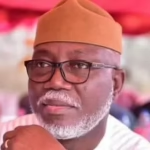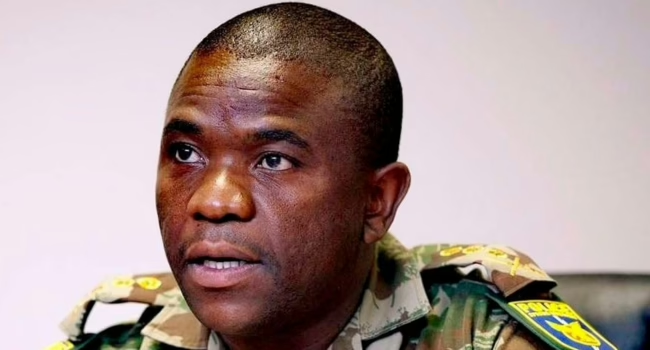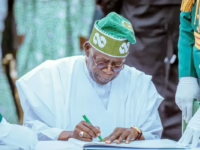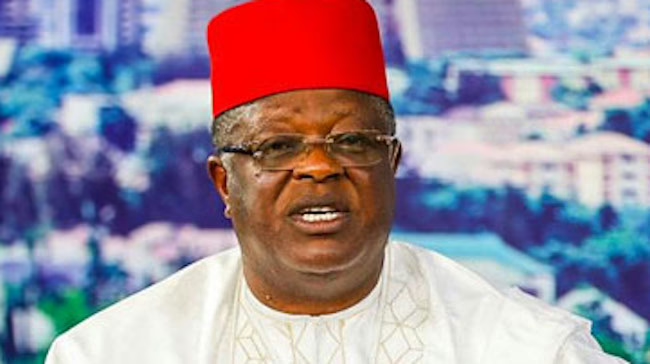For anyone seeking a textbook example of how a national TV interview can unravel into a spectacle of ministerial arrogance, David Ụmahi, Nigeria’s Minister of Works, provides a striking case. His appearance on Rufai Oseni’s Arise TV program didn’t just involve answering questions-it erupted into a public display of indignation and defensiveness.
Oseni posed a straightforward question: “How much?”-a simple demand for transparency about the cost per kilometer of the contentious Coastal Highway project. In a nation plagued by inflated contracts and disappearing funds, such a query is not only reasonable but necessary. Any official confident in their management should welcome the opportunity to clarify expenditures.
Yet, in the Nigerian political context, Ụmahi perceived this inquiry as an affront. Instead of providing a clear, data-driven response, he reacted with condescension, hostility, and defensiveness. What should have been a moment to demonstrate accountability turned into a showcase of entitlement and intolerance. He dismissed the question with scorn, wagging his finger and adopting the posture of a ruler affronted by the audacity of a mere citizen daring to ask about public funds. This episode reflects a broader pattern in Nigerian governance, where transparency is often shunned and accountability is treated as an alien concept.
Ụmahi’s conduct epitomizes the Nigerian political elite’s penchant for viewing governance as a birthright rather than a responsibility. Clad in their symbolic agbadas, these officials bristle at scrutiny, treating questions as personal insults rather than civic duties. The paradox is stark: those entrusted with public resources see themselves as sovereigns, while the citizens who fund their offices are relegated to the role of supplicants.
More than a mere outburst, Ụmahi’s televised meltdown offers a revealing glimpse into the entrenched culture of impunity that pervades Nigeria’s political system. For many in power, being held accountable by journalists or the public is perceived as a challenge to their authority, not a necessary aspect of governance. This defensive posture underscores a systemic resistance to transparency and a preference for privilege over service.
There is, however, a deeper layer to this drama-one that intertwines ethnicity and psychological strain. Ụmahi’s reaction may also be understood against the backdrop of his identity as an Igbo man navigating Nigeria’s complex political landscape. Many Igbo politicians grapple with the tension between ethnic allegiance and national duty, especially amid the ongoing detention of Nnamdi Kanu, leader of the Indigenous People of Biafra (IPOB). Kanu’s prolonged incarceration in Abuja, contrasted with the more lenient treatment of other regional activists like Sunday Igboho, highlights a glaring double standard that fuels resentment in the South-East.
RELATED: Senate urges Nigerian government to establish permanent military base in Kwara
While Sunday Igboho has been able to leave and return to Nigeria, enjoying relative freedom, Kanu remains confined in legal uncertainty, a modern Prometheus bound by the state’s selective justice. Adding to the irony, another Igbo minister, Geoffrey Uche Nnaji, recently resigned over allegations of certificate forgery-submitting his resignation to the highest authority, a scenario so dramatic it would be dismissed as implausible in a Nollywood script.
Perhaps Ụmahi’s explosive demeanor was less about arrogance and more a manifestation of accumulated frustration-caught between witnessing the suffering of his ethnic kin and contending with the hypocrisy of the political system he serves. This pressure cooker of contradictions may have finally burst, revealing a man overwhelmed by the absurdity and injustice surrounding him. Yet, this interpretation requires a leap of empathy that Ụmahi himself seems unwilling to embrace.
If Ụmahi’s allegiance were rooted in a strong sense of Igbo solidarity, he might have channeled his anger into a principled stand against the injustices faced by his people. Instead, he appears to have exchanged ethnic loyalty for political expediency, donning the green-white-green mantle of state service at the expense of communal conscience. His outburst, therefore, cannot be excused as righteous indignation but must be seen as a national embarrassment.
Frustration does not justify disrespect. As a public servant, Ụmahi’s role is to engage with citizens respectfully and transparently, not to belittle them or dismiss their concerns. Despite his engineering background, he failed to demonstrate the fundamental skill of humility. Rather than building trust, he bulldozed through the interview, turning a discussion about public infrastructure into a spectacle of personal humiliation.
David Ụmahi does not deserve leniency. Instead, he earns a place in Nigeria’s Hall of Shame alongside other officials who treat accountability as an affront. He embodies a political class that expects applause instead of scrutiny, reinforcing the barriers that keep Nigeria’s governance stagnant.
Ultimately, Rufai Oseni’s interview did more than question a minister; it exposed a prevailing mindset. Ụmahi’s bluster echoed a chorus of entitlement that drowns out the essential call for responsibility. Nigeria’s progress depends on leaders who recognize that public office is a platform for service, not a throne for ego. The Works Minister’s conduct serves as a stark reminder of how far the country still has to go.
In conclusion, Ụmahi’s outburst was not merely a moment of poor temper but a window into the fragile egos that often underpin Nigerian leadership. Power here is less a vocation and more a costume worn to mask insecurity. When a public official cannot calmly answer a simple question about project costs, it signals not leadership but cowardice cloaked in traditional regalia. In any functional democracy, such behavior would end political careers. In Nigeria, it likely guarantees a seat at the next Federal Executive Council meeting. This reality encapsulates why meaningful change remains elusive.
By: Dr. Vitus Ozoke, lawyer, human rights advocate, and commentator based in the United States.






















